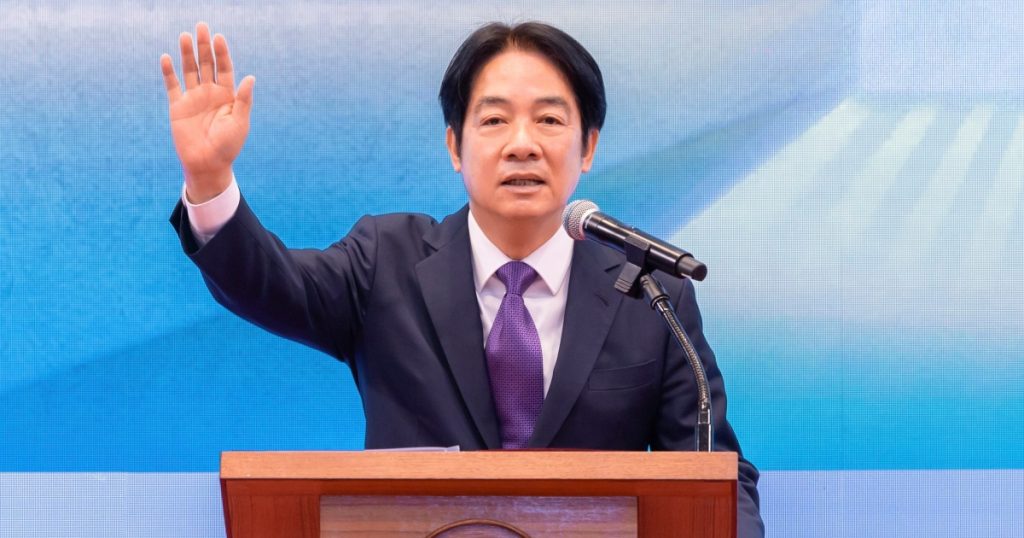Taiwan President Lai Ching-te expressed a desire for equal, dignified, healthy, and orderly exchanges with China, but questioned Beijing’s goodwill due to their restrictions on simple things like tourism. Despite Lai’s willingness to engage in talks with China, he has been consistently rebuffed. China considers Taiwan its own territory and views Lai as a “separatist,” emphasizing that only Taiwan’s people can determine their future. Lai highlighted China’s barriers to normal interactions, such as restrictions on Chinese tourists visiting Taiwan or students studying on the island, while Taiwanese face no such obstacles when traveling to China. He called for reciprocal and respectful exchanges between Taiwan and China.
Lai called on journalists to question China about its unequal treatment of travelers, allowing its citizens to freely visit countries like the U.S. and Japan while imposing strict controls on travel to Taiwan. Lai questioned whether China’s actions demonstrated goodwill towards Taiwan and urged for equal treatment for all parties involved. The ongoing accusations between Taiwan and China regarding tourism and travel restrictions have escalated, with Taiwan advising its citizens against traveling to China unless necessary following a threat from Beijing against perceived Taiwan independence supporters. Chinese President Xi Jinping asserted in his New Year’s speech that no one can prevent China’s “reunification” with Taiwan, reflecting China’s strong stance on the issue.
Taiwan and China have a history of military tension, with China’s military conducting frequent operations near Taiwan and engaging in war games in the region. Lai emphasized the need for democracies to unite in the face of threats from authoritarian countries, pointing to China and Russia’s military cooperation in the Indo-Pacific as a cause for concern. He stressed the importance of cooperation among democracies in defense and security matters, as well as in strengthening the “democratic supply chain” to safeguard economies and industries. Lai expressed hope for increased unity among democratic countries in the New Year to promote peace, democracy, and prosperity in the face of mounting challenges.
In light of the evolving security landscape in the Indo-Pacific, Lai underscored the imperative for democracies to stand together against authoritarian threats. He highlighted China’s military activities near Taiwan, calling for a united front among democracies to counter such actions. Lai emphasized the need for cooperation in defense and security matters to protect the interests of democratic nations and ensure the well-being of their citizens. By working together to establish a robust “democratic supply chain,” countries can mitigate the potential impact on their economies and industries, fostering stability and prosperity in the region.
As tensions between Taiwan and China persist, Lai reiterated his commitment to pursuing dialogue and engagement with China on the basis of reciprocity and dignity. Despite the challenges posed by Beijing’s restrictions on tourism and travel, Lai expressed a willingness to engage in healthy and orderly exchanges with China. He urged for equal treatment and respect in interactions between Taiwan and China, calling attention to the disparity in travel policies between the two sides. Lai’s call for unity among democracies in the New Year reflects a broader effort to address shared challenges and uphold common values in the face of authoritarian threats, promoting peace, democracy, and prosperity in the region and beyond.


